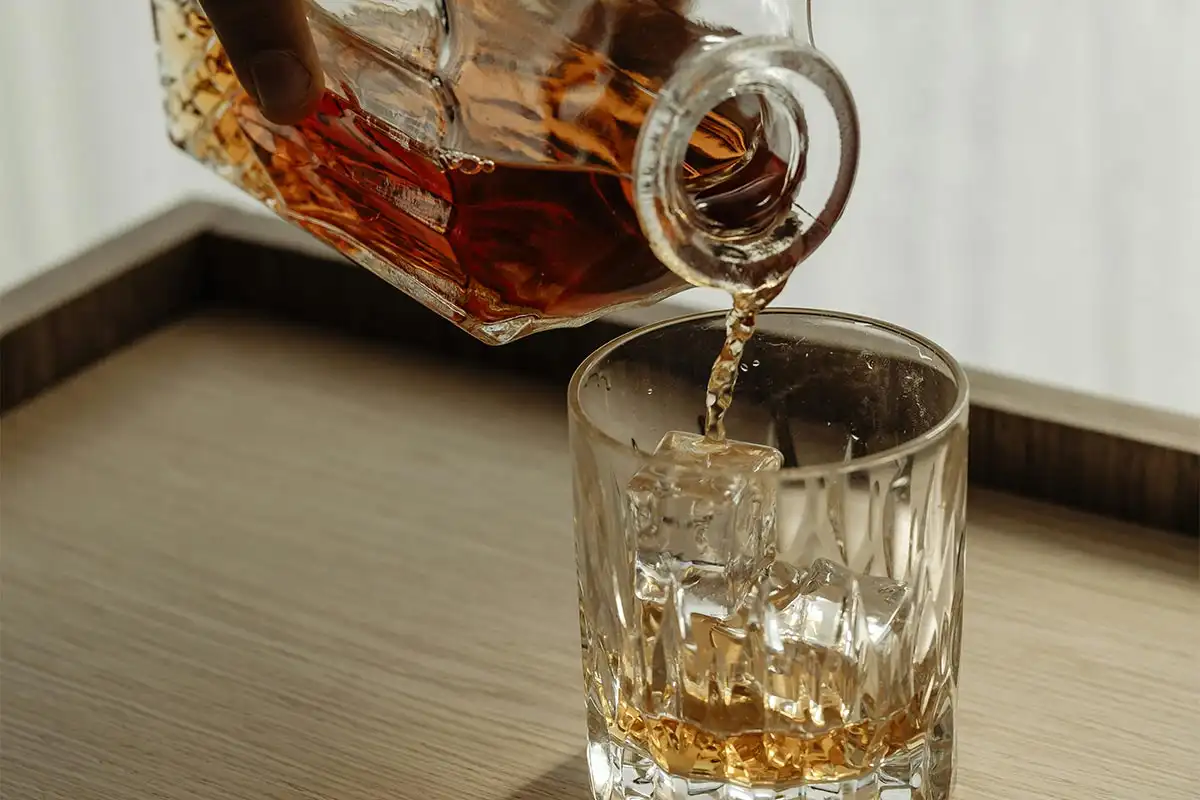
For many people, binge drinking is often seen as a normal part of social life. It might be the way you unwind on weekends, celebrate with friends, or cope with stress. But at what point does binge drinking become more than just a bad habit? When does it cross the line into alcoholism? Understanding the difference between occasional overindulgence and a serious substance use disorder is crucial—not just for your health, but for your future.
At West Coast Detox, we know that recognizing a drinking problem isn’t always easy. Denial, social norms, and a lack of awareness can all cloud your judgment. But if you find yourself asking whether your binge drinking is actually alcoholism, that’s already a powerful step toward clarity. In this article, we’ll explore the signs, patterns, and consequences that help distinguish binge drinking from alcohol use disorder (AUD), and offer guidance on what to do if you realize it’s time to get help.
What is Binge Drinking?
Binge drinking is defined by the National Institute on Alcohol Abuse and Alcoholism (NIAAA) as drinking enough alcohol to bring your blood alcohol concentration (BAC) to 0.08% or higher. For most people, this typically means consuming five or more drinks for men, or four or more drinks for women, in about two hours.
While binge drinking is often portrayed as something that only happens during college parties or wild weekends, it actually affects people across all age groups. You might be surprised to learn that many adults in their 30s, 40s, and beyond also engage in binge drinking on a regular basis. And while it might not happen every day, the health risks can still be serious.
Signs of Binge Drinking:
- Drinking heavily in a short period of time
- Feeling out of control or unable to stop once you start drinking
- Blacking out or not remembering parts of the night
- Drinking more than you planned to
- Using alcohol to cope with stress, anxiety, or depression
Even if these behaviors are occasional, they can still have long-term consequences. Over time, binge drinking can damage your liver, heart, and brain, increase your risk of accidents, and negatively impact your relationships and career.
What is Alcoholism?
Alcoholism, also known as alcohol use disorder (AUD), is a chronic medical condition characterized by an inability to stop or control alcohol use despite negative consequences. It often develops gradually, sometimes beginning with behaviors that look a lot like binge drinking.
Someone with AUD might start out drinking heavily on weekends but eventually find themselves drinking daily, needing alcohol to function, or feeling withdrawal symptoms when they try to stop.
Common Signs of Alcoholism Include:
- Craving alcohol frequently
- Needing more alcohol to achieve the same effect (tolerance)
- Drinking alone or in secret
- Neglecting responsibilities at work, school, or home
- Continuing to drink despite negative consequences (legal trouble, relationship problems, health issues)
- Experiencing withdrawal symptoms such as shakiness, sweating, or anxiety when not drinking
If any of these signs sound familiar, your drinking may have progressed from binge drinking to alcohol dependence.
How Binge Drinking Can Turn Into Alcoholism
While not everyone who binge drinks becomes an alcoholic, there is a clear link between the two. Repeated episodes of binge drinking can lead to physical dependence and addiction over time. The more often you drink excessively, the more likely your brain and body are to adapt to the presence of alcohol, making it harder to cut back or stop.
Additionally, binge drinking can create a cycle of guilt, shame, and self-medication. You might feel terrible after a night of heavy drinking, only to drink again to escape those uncomfortable emotions. This pattern can reinforce addictive behaviors and increase your risk of developing AUD.
Get Your Questions Answered
Reach out today to get the answers you need about drug and alcohol detox. Our compassionate team is here to guide you through every step of the process and help you take the first step toward recovery.
Key Differences Between Binge Drinking and Alcoholism
| Binge Drinking | Alcoholism (AUD) |
|---|---|
| Occasional heavy drinking episodes | Regular or daily drinking |
| May not involve cravings or dependence | Strong cravings and physical dependence |
| Typically used for socializing or emotional release | Becomes a coping mechanism or necessity |
| No withdrawal symptoms | Withdrawal symptoms when not drinking |
| May not interfere with daily life initially | Impacts work, relationships, health |
Questions to Ask Yourself
If you’re unsure whether your binge drinking is crossing the line into alcoholism, ask yourself the following:
- Do I often drink more than I intended to?
- Have I tried to cut back but found it difficult?
- Do I spend a lot of time thinking about or planning my drinking?
- Has my drinking caused problems in my relationships or job?
- Do I feel anxious, shaky, or irritable when I don’t drink?
- Have I experienced blackouts or memory loss from drinking?
Answering “yes” to any of these questions could indicate a problematic relationship with alcohol. Even if you haven’t reached the clinical definition of alcoholism, it’s a sign that your drinking may be hurting you more than you realize.

Why Early Intervention Matters
One of the biggest misconceptions about alcohol addiction is that you have to hit “rock bottom” before getting help. But the truth is, the earlier you intervene, the better your chances of a full recovery.
Catching the warning signs early—before you become physically dependent or before alcohol causes irreversible damage—can help you avoid the more severe consequences of long-term alcohol abuse. At West Coast Detox, we believe in empowering people to take control of their lives at any stage of their journey. Whether you’re just starting to question your habits or have been struggling for years, support is available.
What To Do If You Think You Need Help
If you’re beginning to recognize that your drinking might be more than just a phase, it’s time to take action. Here are some steps you can take:
- Talk to a Professional: A therapist, doctor, or addiction specialist can help you assess your drinking patterns and determine the best course of action.
- Consider Detox: If you suspect you may be physically dependent on alcohol, a medically supervised detox can help you safely manage withdrawal symptoms and begin recovery in a supportive environment.
- Join a Treatment Program: At West Coast Detox, we offer comprehensive inpatient and outpatient programs designed to help you understand the root causes of your addiction, develop healthy coping strategies, and rebuild your life in recovery.
- Build a Support System: Recovery is easier when you’re not doing it alone. Whether it’s family, friends, or a support group, having people you can count on makes a huge difference.
- Make Lifestyle Changes: Replacing drinking with healthier activities, managing stress, and creating structure in your life can all support long-term sobriety.
You’re Not Alone
Millions of people struggle with alcohol misuse, and many don’t realize they have a problem until it begins to impact their lives in serious ways. If you’ve been wondering whether your binge drinking is actually alcoholism, you’re already taking the first step toward change: awareness.
The next step is action. And you don’t have to do it alone.
At West Coast Detox, our compassionate team is here to support you every step of the way. We provide a safe, welcoming environment where you can heal, grow, and rediscover what it means to live a life free from alcohol. Whether you’re at the beginning stages of questioning your drinking or ready to make a change, we’re here to help.
Final Thoughts
The line between binge drinking and alcoholism can sometimes be blurry, but if alcohol is starting to control your life instead of you controlling it, it’s time to take a closer look. Recognizing the signs, asking tough questions, and reaching out for help can set you on the path to a healthier, more fulfilling future.
You deserve a life that isn’t limited by alcohol. Let West Coast Detox help you reclaim it.























